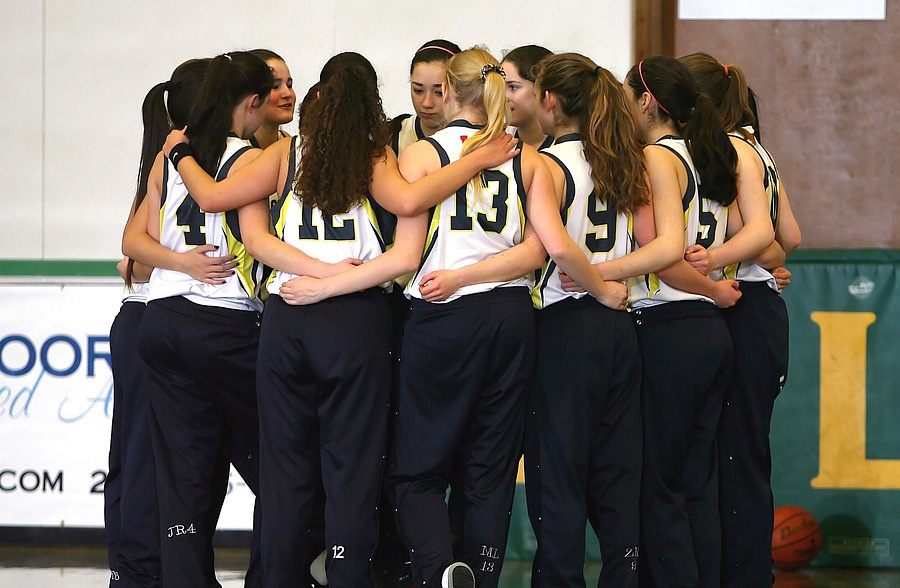Coaching for Significance: Low & High Trust Teams
When trust has not been established or where it has been lost, every part of the team’s progress is impacted. Teams that lose are often categorized as having poor offensive or defensive schemes but often the root of the problem is a lack of trust. Players either don’t trust the coach or their teammates and it comes out in being hesitant or fearful during competition. Their commitment is questioned but their low level of investment stems from the low level of trust.
Players lose the power of togetherness and start thinking individually. Individual credit becomes more important because they have to constantly prove themselves. Everyone starts looking out for themselves. Everything bad that happens seems to feed the distrust mentality. When something good happens the feeling is “I did it,” and when something bad happens “they did it.” Words and actions are distorted to support individuals and not teams. There are lots of promises made followed by lots of excuses. The energy level is low and people develop a survival or defeatist mindset.
 On low-trust teams, there is often overt friction with the stronger personalities and withdrawal by the weaker personalities. Personal conflicts, subgroups, suspicion, political agendas, and defensiveness all become part of the team culture. The downward cycle continues and low trust slows everything. Decisions are questioned, and relationships become strained. Even those players who do trust get caught up in the mentality and become discouraged because playing on a team without trust saps your energy and is not fun.
On low-trust teams, there is often overt friction with the stronger personalities and withdrawal by the weaker personalities. Personal conflicts, subgroups, suspicion, political agendas, and defensiveness all become part of the team culture. The downward cycle continues and low trust slows everything. Decisions are questioned, and relationships become strained. Even those players who do trust get caught up in the mentality and become discouraged because playing on a team without trust saps your energy and is not fun.
“Trust men and they will be true to you. Treat them greatly and they will show themselves to be great.” — Ralph Waldo Emerson
High Trust Teams
When you witness a high-trust team in action the first thing you notice is the energy and effort levels; they are both consistently high. Coaches and players can express themselves with fewer words, in less time, and more directly without having hurt feelings or negative reactions. Issues that might be overlooked or overreacted to on low-trust teams are dealt with head-on. Because there is a culture of accountability, mistakes are quickly admitted, correction appreciated or self-correction applied and then everyone moves on. When things go well, the credit is shared and when things go wrong people are accountable, blame is not fixed, and failure is a shared responsibility. Full-effort mistakes are encouraged as a quick way of learning and improving. Everyone seems to be on the same page. “We” is more important than “me.” The best players are the best examples of team values. No one is given a pass on being a good teammate. All of this builds momentum, positive energy, confidence, increased trust, and better performance.
The higher the trust level, the more responsibility is rewarded, given, and embraced. On high-trust teams there is a collective responsibility – players and coaches are not driven by fear or anger but by the feeling of not wanting to let each other down. There is an emotional attachment, a strong personal commitment, and also an element of joy – being with people you completely trust is fun. Trust pays in results.

When young people know that you trust them, it can improve their performance but more importantly, it can change their life. So many of our young people don’t have the support of strong family or solid friends and they need to have someone they can look up to, someone to trust. It makes them feel valued and gives them the courage to live up to high expectations and team standards. Most athletes will live up to the faith the coach has in them. The last person young people want to let down is the adult that believes in them. Trust in a team changes everything.
This article is an excerpt from our booklet, The Impact of Trust. For support materials, go to our website – www.proactivecoaching.info. For additional application ideas call 360.502.0424 or email [email protected].
Content provided by the National High School Athletic Coaches Association. For more information visit: nhsaca.org





